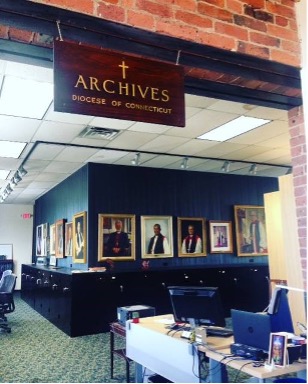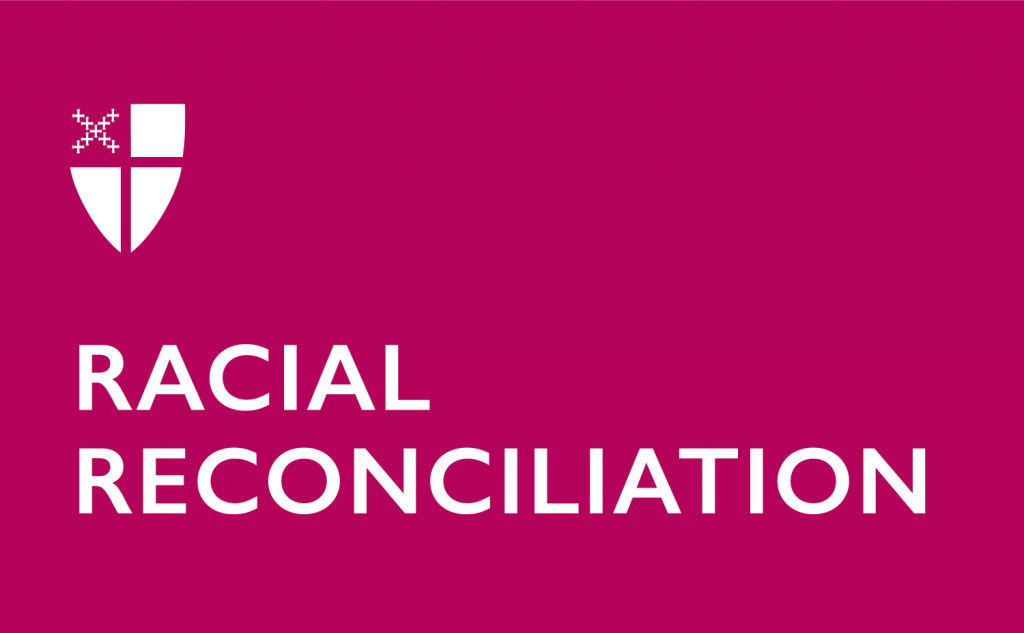Reflection from Connecticut
By Greg Farr

At the 2020 annual convention of the Episcopal Church in Connecticut (ECCT), Resolution No. 7 was passed with the intent to recognize and confront systemic racism, white supremacy, and anti-Black bias in our nation and in our diocese. This resolution directed each parish, worshipping community, and/or intentional Episcopal community to take steps to discover and document historic complicity in racism related to their parish and local communities. As ECCT’s diocesan archivist, I find that this work has represented a special journey for me, not only in addressing such legacies of historic forms of enslavement in my own spiritual and everyday life, but also as I strive to establish the ECCT Archives as an inclusive, trusted repository that both provides accurate records of our historical past and collects archival materials of reparative value related to all who practice the Episcopal faith within our regional communities.
Over the past few years, I have assisted several researchers with their archival inquiries by providing them with published histories and early parish register records from their respective parishes as such may be accessible within our diocesan archival collections. It is often possible for parish researchers to then trace the identity of enslavers and/or those who likely participated in the colonial slave-trade economy by combining these records with early census data and other civic records. Sacramental and vestry records also have been useful for organized parish committees attempting to uncover contextual information about enslaved Black parishioners interred in their parishes’ cemeteries, as well as to understand the circumstances of Black parishioners who were baptized into local parish communities, yet subsequently had their inclusion or participation in its worship practices denied or restricted. In complementary research projects, one parishioner in our diocese worked creatively and methodically with parish records, ancestral databases, and newspaper archives to compile invaluable quantitative and qualitative information about “escapees” who fled enslavement in New England between 1700 and 1850. In the course of my work I have come to recognize such disclosures to be incontrovertible, evidential forms of historic racism that stand alongside “findings” that are not so easy to recognize—such as the lack of historical representation of Black clergy in diocesan conventions throughout the 19th and early 20th century, or the less-than-equal entitlements of historically Black parish communities seeking union with the diocese in these later periods of American history.
While my work has allowed me the opportunity to learn and find healing support from clergy, lay-leaders, parishioners, historians, scholars, and other professional archivists, it has also exposed me to myriad forms of human suffering that stem from ingrained forms of social injustice, as well as to the complex claims this suffering presently makes on our bodies, minds, and souls. In these recognitions, I find myself sorrowfully turning to lament as I regularly recall and engage with the memories of early religious leaders who were also enslavers of men, women, and children, or with the many institutional religious organizations in our collective past that historically perpetuated racist and prejudiced beliefs and stereotypes. Ultimately, the faith that sustains my willingness to steadily and truthfully engage with our past history aligns with my acquired understanding that the actions of historical discovery, listening to every story, discerning with empathy, and grieving where it is well to do so, all emerge as signs that suggest that real possibilities continue to exist for racial reconciliation.
I also have been deeply inspired by the many researchers whom I have met who are committed to documenting historic racism associated with their parish communities and who continue to engage in public dialogue, to create public programming, to share their scholarship with local institutions, and to assist in memorializing (i.e., with plaques and markers) those individuals and peoples who historically were enslaved or marginalized by racism in the past. My hope continues, moreover, in our common commitments to those ways of living that form the vision of becoming a Beloved Community. There is much work still to be done, and it is never too late to get started—along the way, I will look forward with gratitude to future collaborations with others who value historical knowing, will reckon with the past when there is a need for healing and/or reparation, and will look toward the practice of the way of love as we live into the future.
—
Greg Farr serves as the current diocesan archivist/record manager for the Episcopal Church in Connecticut. A certified archivist and digital archive specialist, Farr holds master’s degrees in theological studies and library and information science.

